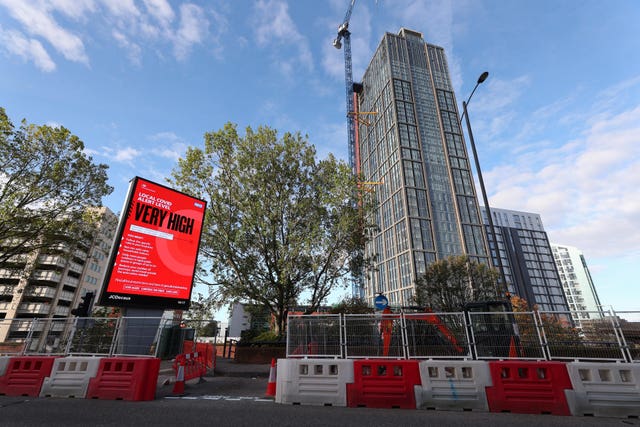
Iain Dale 10am - 1pm
21 October 2020, 15:44

Greater Manchester, South Yorkshire, Lancashire and the Liverpool City Region will all be under Tier 3 restrictions.
Millions more people in parts of northern England will face stringent coronavirus restrictions in the coming days.
But what financial support is the Government offering to these areas – and is the support fair?
– South Yorkshire
Some 1.4 million people in Barnsley, Doncaster, Rotherham and Sheffield will be affected by Tier 3 measures from Saturday morning.
The package of support agreed includes £11 million to invest in a localised test and trace system – equivalent to around £8 per capita.
A further £30 million of support for businesses affected by the restrictions, as well as their employees, will be offered. This equates to approximately £22 per capita.

– Greater Manchester
A row over the financial support meant agreement was not reached between Westminster and local leaders before the Government announced Tier 3 measures were to be imposed.
Civic leaders wanted a minimum of £65 million to support the region’s 2.8 million people, but Boris Johnson refused to offer more than £60 million.
The Prime Minister confirmed to MPs that the £60 million for business support – which is in line with the offer for South Yorkshire of approximately £22 per capita – would be distributed to the region’s boroughs.
The Government has also agreed to £22 million to help authorities implement and enforce restrictions – approximately £8 per capita.
– Lancashire
The 1.5 million people of Lancashire were placed under Tier 3 restrictions last week, with the agreement of local leaders.
The county secured £30 million of business support – equivalent to approximately £20 per capita.
A further £12 million for enforcement was agreed – in line with the £8 per capita offered to other areas.
– Liverpool City Region

The Liverpool City Region was the first area to come under Tier 3 restrictions earlier this month, with tougher measures affecting its 1.6 million people.
It secured £14 million for enforcement, and a further £30 million of business support.
This equates to approximately £8 per capita for enforcement, and £19 per capita for business help.